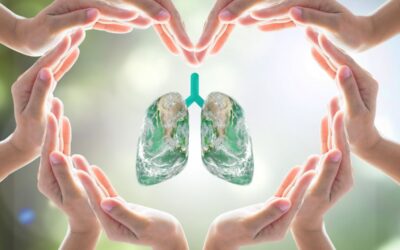Cross-Consortium Grant Results
RePORT International Coordinating Center (RICC) Cross-Consortium Grant Results
We are pleased to announce the awardees of the RICC Cross-Consortium grant competition. A special thanks to the applicants and external reviewers of each proposal as well as to those who inquired and those who applied. RICC will be releasing a new RFA soon.
Predictors of Resistance Emergence Evaluation in MDR-TB Patients
Lead Investigators
- Prerna Rahul Arora, PhD (P.D. Hinduja Hospital and Medical Research Centre)
- Felipe Ridolfi, MD, PhD (Fiotec – Fundação para o Desenvolvimento Científico e Tecnológico em Saúde)
Co-Investigators and Research Team
- Yilan Gao, MPH (Boston University School of Public Health)
- C. Robert Horsburgh, Jr., MD, MUS (Boston University School of Public Health)
- Camilla Rodrigues, PhD (P.D. Hinduja Hospital and Medical Research Centre)
- Valeria Cavalcanti Rolla, MD, PhD (Instituto Nacional de Infectologia Evandro Chagas)
- Hasan Safi, PhD (Rutgers, The State University of New Jersey)
- Timothy Sterling, MD (Vanderbilt University)
Synopsis
This proposal, an extension of the Predictors of Resistance Emergence Evaluation in MDR-TB Patients on Treatment (PREEMPT) study, takes advantage of samples from this cohort study in India and Brazil that enrolled and followed 365 patients with MDR-TB (23% HIV+) and collected and stored monthly sputum samples with prospective follow-up through 12 months after treatment completion. Of these, 22 (6%) developed resistance during treatment; 14/22 (63%) developed resistance to fluoroquinolones, a cornerstone drug class for MDR-TB treatment. Two (14%) of the 14 had HIV infection. All PREEMPT study participants had MDR-TB treatment administered by direct observation, decreasing the likelihood that the emergence of resistance resulted from non-adherence. In this proposal, there will be new microbiological assays that will be used to probe the frequency of emergence of resistant clones at baseline and identify the emergence of new clones via mutation of sensitive baseline organisms. We will also examine the emergence of bedaquiline (BDQ) resistance among PREEMPT participants who received BDQ. In addition, investigators will probe the emergence of resistance among HIV-infected persons to gain insight into any
potential differences in mechanism in this subpopulation.
Metabolites, inflammation, T2DM and tuberculosis patients
Lead Investigators
- N. Pavan Kumar, PhD (ICMR-National Institute for Research in Tuberculosis)
- Rajesh Kumar Radhakrishnan, PhD (Saint Louis University)
- Charles Yu, MD, MSc (De La Salle Medical and Health Sciences Institute)
Co-Investigators and Research Team
- Arvin Aquino, MSc ((De La Salle Medical and Health Sciences Institute)
- Karan Singh, PhD (The University of Texas at Tyler, Health Science Center)
- Ramakrishna Vankayalapati, PhD (Saint Louis University)
Synopsis
Macrophages are initial sources of inflammation and the investigators’ recently published studies demonstrate that metabolic changes in macrophages regulate inflammatory responses. Alveolar macrophages are the first cells to respond to M. tuberculosis infection and play a major role by eliminating intracellular pathogens. M. tuberculosis-infected macrophages undergo either apoptosis or necrosis depending on the multiplicity of infection. Macrophage apoptosis reduces the survival of bacilli and inflammation and enhances antigen presentation. In contrast, virulent M. tuberculosis infection enhances the necrosis of macrophages, which allows the growth of extracellular bacteria and the dissemination of disease. In bacterial and viral infections, necrotic cell death is associated with complex death pathways, including necroptosis, pyroptosis, ferroptosis and NETosis.
This study’s overall hypothesis is that M. tuberculosis infection during type 2 diabetes mellitus (T2DM) leads to hyperglycemia-induced metabolic changes in macrophages that enhance necroptosis, as well as excess inflammation and the death of the host. The relevance of the above mice findings to human tuberculosis patients with T2DM. The proposed human studies. will help to further understand these mechanisms to develop adequate prophylaxis or therapy in M. tuberculosis-infected T2DM individuals. The specific aims of the proposal are:
- Determine whether necroptosis is a major cellular pathway responsible for excess inflammation in tuberculosis patients with T2DM;
- Identify the hyperglycemiainduced metabolic changes that enhance necroptosis;
- Identify the subpopulations of monocyte-derived macrophages (MDMs) of tuberculosis patients with T2DM (single-cell RNA sequencing and flow cytometry) that are susceptible to hyperglycemia-induced metabolic changes that enhance necroptosis.
Evaluating the clinical utility of a novel RNA based assay for predicting TB treatment outcomes and diagnosing paucibacillary TB
Lead Investigators
- Kayvan Zainabadi, PhD (Center for Global Health at Weill Cornell Medicine) (PI)
- Moses Joloba, MBBS, PhD School of Biomedical Sciences, Makerere University)
- Rajesh Karyakarte, MBBS, MD (B. J. Government Medical College)
- Emmanuel Nasinghe, MBChB, MSc (School of Biomedical Sciences, Makerere University)
- Mandar Paradkar, MBBS, DCH, MPH (B. J. Government Medical College)
- Neeta Pradhan, MSc (B. J. Government Medical College)
Co-Investigators and Research Team
- Francesca Basile, MD, MSc (Oxford University)
- Jerrold Ellner, MD (Rutgers, The State University of New Jersey)
- Amita Gupta, MD (Johns Hopkins University)
- David Patrick Kateete, DVM, PhD (Makerere University Medical School)
- Myung Hee Lee, PhD (Weill Cornell Medicine)
- Vidya Mave, MD, MPH (B. J. Government Medical College)
- Rinn Song, MD, MPH (Oxford University)
Synopsis
This study plans to utilize the recently developed novel Mtb 16S rRNA-based assay that overcomes previous challenges and achieves a limit of detection ≤10 Mtb/mL. When tested on the sputa of TB patients during the first 2 months of therapy, it showed 100% sensitivity with respect to culture; and identified positivity in a percentage (40%) of culture-negative patients at month 2 that is consistent with known relapse rates when first-line therapy is discontinued early. Importantly, this assay is compatible with frozen sputum and can be used in resource-limited settings. We now propose to evaluate the clinical utility of this assay for predicting treatment outcomes and for diagnosing paucibacillary TB by establishing a RePORT India, RePORT Uganda and Weill Cornell Medicine consortium to examine existing TB cohorts with banked samples and known clinical outcomes. The study aims are assessing the clinical utility of the Mtb 16S rRNA-based assay to predict treatment outcomes. the following measures early and late during therapy correlate with treatment outcomes and assessing the clinical utility of the Mtb 16S rRNA-based assay to detect paucibacillary TB. This study will utilize an existing suspected pediatric TB cohort from RePORT Uganda (n=650) who were followed for up to 24 months for TB diagnosis.
What's new
Goa Conference 2023
goa conference 2023 6 sept - day 18:00-8:20 am Registration Outside LISBOA Ball Room8:20-8:35 am Welcome & Introduction Sudha Srinivasan, National Institutes of Health, USA, Jyoti Logani, Department of Biotechnology, India, Jerry Ellner, RePORT...
Accelerating TB Diagnostic
Accelerating TB Diagnostic DevelopmentMajor boost to progress in tuberculosis testing on World TB Day as diagnostics partners bring together SMART4TB, DriveDx4TB, FEND-TB and R2D2 TB Network projectsMajor boost to progress in tuberculosis testing on World TB Day as...
Rutgers Funded to Curb TB
Rutgers funded to curb tbRutgers is Awarded $20 Million to Lead Consortium of 7 Universities and 8 Nations to Curb TuberculosisRutgers is Awarded $20 Million to Lead Consortium of 7 Universities and 8 Nations to Curb Tuberculosis“Given its scope, the consortium has...



